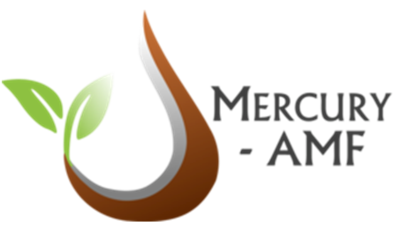In Ghana and Burkina Faso, the small-scale, often illegal gold mining has a strong impact on the ecological and socio-economic development of the neighboring communities. Gold miners use liquid mercury (Hg) for amalgamation to extract gold from its ores. Consequences of this process include the contamination of drinking water and agricultural land as well as health problems in people working in the mining industry. At the same time, Gold is an important source of revenue for people living in rural areas in Ghana and Burkina Faso.
The project aims to reclaim these Hg-contaminated sites for agricultural use through the introduction of myco-phytoextraction. This innovative remediation technology uses a biological system of selected plant species and arbuscular mycorrhizal fungi (AMF), fungi that live in symbiosis with plants by colonizing their root system.
Partner from Germany, Ghana und Burkina Faso will elucidate the functionality and underlying mechanisms of myco-phytoextraction and develop practical application opportunities. Close cooperation with local stakeholders will ensure that project results are utilized for commercializing products and services in West African markets. Mercury-AMF addresses the CLIENTII thematic priority area “Sustainable Technologies and Services for Land Management”.
The research consortium organizes the work across five work packages in Ghana and Burkina Faso as well as in controlled research environments in Germany:
1. Genetic profiling of potential AMF-strains;
2. Isolation, propagation and tuning of Hg-tolerant AMF-strains for application under local conditions;
3. Testing the AMF-plant-systems in pot and field experiments;
4. Evaluating the AMF-plant-systems with regard to Hg-accumulation and reaction to Hg-exposition;
5. Institutional and socio-economic conditions for the adoption of AMF-plant-systems.
The project is coordinated by the Department of Agronomy in the Tropics and Subtropics and the Department of Crop Physiology of Specialty Crops. Hohenheim Research Center for Global Food Security and Ecosystems (GFE) supports the coordination with project management and contributes to the communication and dissemination of project outcomes to the public

